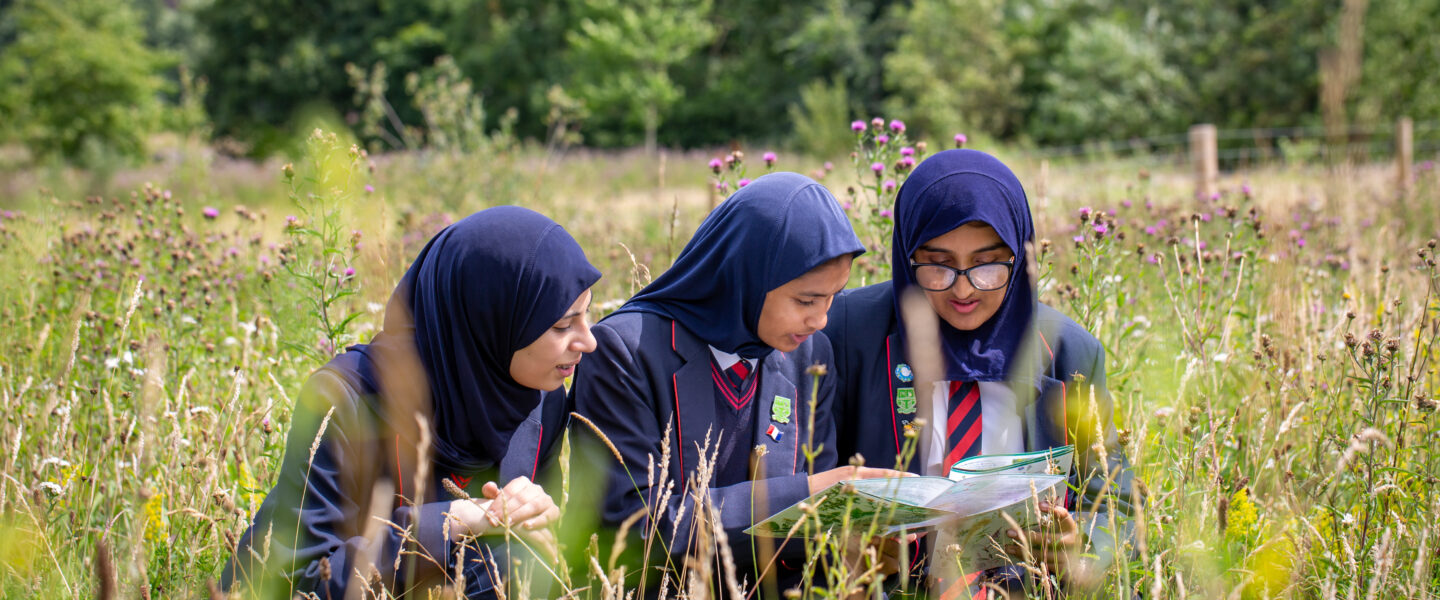Since 1994 the Eco-Schools Framework has guided and empowered millions of young people to deliver eco-projects that make their school more sustainable, increase environmental learning, and benefit their local community. Eco-Schools’ seven simple steps can be adapted for any setting, budget, and timescale. Schools that complete the seven steps can apply for our prestigious award, the Eco-Schools Green Flag. Read on to find out more about the Eco-Schools Seven Steps and register to access resources, view the criteria for each step, and begin your application today.
Step 1: Eco-Committee
An Eco-Committee is a group of young people who, with the support of one or more adult Eco-Coordinators, lead the Eco-Schools programme in your school. The Eco-Committee will meet regularly throughout the academic year, plan and deliver environmental projects, and inspire their schoolmates and wider school community. Eco-Committee members can be from a variety of year groups and members may be volunteers, democratically elected, or chosen by teaching staff.
Step 2: Environmental Review
Using our free resource (downloadable when logged in to your Eco-Schools account) an Eco-Committee completes an Environmental Review of their school. The Review can be completed as a group, or in smaller teams, and is a great way to identify environmental initiatives already taking place in your school, areas for improvement, and opportunities for quick eco-wins.
Step 3: Action Plan
Inspired by their Environmental Review, an Eco-Committee plans and delivers projects and actions for to three of our Eco-Schools topics across the academic year. You and your Eco-Committee choose the issues you want to tackle and the actions you deliver. Actions can be big or small; simple or complex; funded or free – it is up to you and your Eco-Committee.
Step 4: Curriculum Links
Alongside taking action, it is important to understand why action is needed, so we ask schools to link climate change to at least three areas of curriculum learning during the year. You might make eco-themed artwork from recycled items, practice letter writing skills by contacting your MP, or even learn about the Industrial Revolution and how this period has unexpectedly impacted our planet.
Step 5: Informing and Involving
Step 5 encourages Eco-Committees to get loud about their Eco-Schools’ work whilst involving others in as many ways as they can. Your Eco-Committee might share their work through newsletters, social media, local press, or environmentally-themed pupil-planned assemblies. They should also carefully consider how the projects in their Action Plan can be extended to involve schoolmates, staff, and families to maximise the impacts of their work.
Step 6: Monitoring and Evaluation
It is important for an Eco-Committee to understand the positive impacts they have created by monitoring and evaluating the projects in their Action Plan. This provides a platform to build on and will help inspire others to get involved in the future. Your Monitoring and Evaluation should work for you – it can be anything from before and after pictures, to graphs and charts, or even diary entries, it is your choice!
Step 7: Eco-Code
The final task for an Eco-Committee is creating an Eco-Code. This takes all your learning and inspiration and channels it into a mission statement that acts as a call to action for all. Your Eco-Code could be a poster, poem, or even a song, but whatever form it takes it should show your passion and inspire others.

